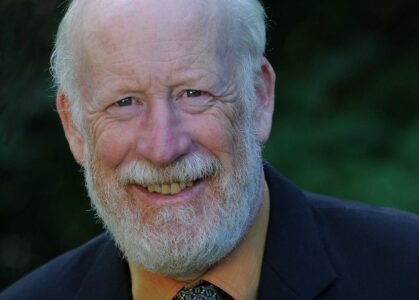WHO REALLY OWNS CITY HALL 7: (#9)
The Official Community Plan (OCP) is a bylaw like no other. The Municipal Act not only requires councils to adopt an OCP; it establishes a time limit for its adoption. The procedure for developing and adopting an OCP is also without equal. The Act requires councils to hold public hearings and it prescribes the form, content, and means for publishing their intentions to adopt or amend an OCP.
The prescriptions go so far as to require councils to submit OCP public hearing notices to the Minister and to the Yukon Municipal Board prior to publication. After the public hearing, but before third reading, council must submit the OCP to the Minister for approval. If the Minister has concerns about any aspect of an OCP, he or she may refer it back to council with recommendations for modifications. It is up to council to decide how to respond to the Minister’s recommendations, but there is no doubt about the Minister’s role: an OCP cannot be adopted without the Minister’s consent.
An OCP is both enabling and restricting. It is enabling in that the OCP encourages but does not compel action. It is restricting in that a council may not enact provisions or carry out developments that would contravene or be at variance with the OCP. The OCP thus averts hasty council decisions on proposals of a kind not anticipated at the time the OCP was adopted. If council wishes to pursue such a project it must first amend the OCP.
In terms of a municipality’s day-to-day management and operations, the OCP’s impact is minimal. This fact amounts to a wasted opportunity for citizens. Councils are rarely held to account for their effort – or lack of effort – to pursue the OCP’s lofty visions and objectives.
Matters councils must address in an OCP include the development and use of land, municipal services and facilities, environmental matters, and the development of utility and transportation systems. These matters flow from the Municipal Act’s principle of services to property. Notable by their omission from the list of required OCP contents are matters flowing from the Act’s principles of council accountability to citizens and of public participation being fundamental to good local government. Accountability and public participation are linked; one is not feasible without the other. How are these two objectives to be achieved when public participation may be ignored at council’s discretion?
Municipal councils make decisions, enact bylaws, and levy taxes on behalf of the citizens they were elected to represent and serve. TheAct provides for flexibility in the make-up of that representation. It allows for town councils to consist of a mayor and four or six councillors, and city councils of a mayor and six or eight councillors. A further option available to towns is to elect five (or seven) councillors, and leave it to these councillors, after the election, to appoint one of themselves to serve as mayor. (This option should be available to cities as well). This idea may seem unusual, but the municipal order of government is in fact the only one in Canada in which the chief executive officer is elected directly by citizens. We elect mayors, but we do not elect Premiers and the Prime Minister.
Questions concerning the number of councillors, the designation of the mayor, representation by ward, or term limits (as suggested in a prior column) are all relevant to the legitimacy of a council’s representation. The legitimacy of a council’s representation hinges on citizens having the final say in matters concerning the make-up of their municipal council. The Act must be amended to add governance to the list of required OCP content. An OCP could then address the size and make-up of council. It could also include objectives and policies for the establishment of committees, boards, and commissions, addressing their structures and membership (citizen-council ratio). Where the relationship with other levels of government is of particular concern (e.g., First Nations, Parks Canada), OCP policies could call for dedicated committees, addressing terms of reference, mandate, membership, and reporting protocol.
When we consider governance as a critical component of an OCP we become aware of the full ramifications of the 2009 Court of Appeal decision in Whitehorse(City) v. Darragh. That decision denied citizens’ access to Public Votes procedures to amend their municipality’s OCP. What effect does this have for the citizens of Whitehorse? The Whitehorse OCP contains more than 100 pages. It includes maps and promulgates principles for environment, community development, local economy, equity, leadership and education. Under these principles we find 23 broad objectives and 71 specific objectives. Look at objective #22.1.1 which calls for the integration of participatory planning and decision-making under the principle of leadership and education. Objective #22.1.1 reads as follows: “The City will strive to continue its practice of engaging all citizens in community planning.” This objective was adopted after Whitehorse Council spent thousands of dollars in legal fees to thwart an attempt by citizens to engage in precisely that: community planning. Was it the purpose of Objective 22.1.1 to lobby the Legislative Assembly to negate Whitehorse(City) vs. Darragh or was it merely a public relations exercise? Whatever council’s motives, the Act does not oblige council to lift a finger to advance Objective 22.1.1, and the Court of Appeal’s decision leaves citizens powerless to do anything about it. What options do Whitehorse citizens have, should they wish to add an objective or amend any of the 71 specific objectives in their OCP? They may plead and lobby, or write letters and hold protests, but they no longer have access to the Act’s Public Votes procedures to initiate anything related to the OCP (or to any bylaw where the Act calls for a public hearing). This reality is not limited to Whitehorse. The Court of Appeal decision affects every Yukon municipality. It reduced the Act’s lofty principle of public participation to symbolism without substance.
To be engaged means more than to be consulted, it means to partake, to contribute, to share, and to have a hand in a process from beginning to end. Public hearings have value, they give citizens a right to be heard, but they do not oblige councils to listen. The Minister’s role in the OCP approval process is reasonable considering the OCP’s far-reaching consequences. What is wholly unreasonable and an affront to the Act’s public participation principle is to limit the citizens’ role in the OCP to making presentations at a public hearing.
Municipalities typically engage consultants to write their OCP. Some consultants, in cooperation with municipal staffs and councils, invite submissions from citizens during the early stages of the OCP process. Such consultations are voluntary. The essential decisions, those that shape the OCP’s overall focus, the ranking of priorities, the balancing and mediating of conflicting visions, objectives and policies are made by council working with consultants and staff. Citizens do not play a role in these decisions. The mandatory public hearing occurs in the final stages of that process. It does not offer an opportunity for input; it offers an opportunity to criticize the OCP in its final draft form.
There is no question as to the legality of an OCP bylaw so long as it has been approved in compliance with the Act. The same cannot be said of its legitimacy. We are not dealing with an Official Municipal Plan; we are dealing with an Official Community Plan. Municipality is not a synonym for community. The purpose of the former is to serve the latter; not the other way around. The challenge of the OCP process is to consolidate the multitudes of visions, ambitions, and values of the people who make up a community. A responsible OCP is a compromise; it is the community’s directive to council. It articulates the community’s vision and authenticates the policies citizens want their elected councils to be guided by. Put another way, the OCP should — and if approved by citizens it would — be the community’s Speech from the Throne, its State of the Union Address.
Legitimacy is a desirable but not an essential aspect of a regular bylaw. Zoning bylaws, traffic bylaws, or animal control bylaws may be impractical, ill-conceived, or unwieldy, but such considerations do not affect their legality and enforceability. A budget bylaw’s priorities may be misguided, but what really matters is that the revenues and expenditures it projects are in balance. To restate the opening observation, an OCP is a different kind of bylaw. The OCP does not regulate what citizens shall do or shall not do. The OCP is a community’s guide for its elected council. To that end the OCP’s critical element is not its legality but its legitimacy. To apply the Act’s principle, public participation is fundamental to an OCP’s legitimacy. An OCP acquires its legitimacy to the extent that it is owned by the community’s citizens, and that ownership is a manifestation of local government democracy. Democracy is not a form of government; democracy arises out of the citizens’ capacity to govern themselves. To strengthen that capacity it is essential to negate Whitehorse(City) v. Darragh and restore the application of the Municipal Act’s Public Votes procedures to their original intent. But the Act must go one step further. It must require a mandatory referendum, after the Minister has signed off, to be the final and decisive step in the approval of Official Community Plan bylaws and their amendments.
My next column will be the final one on the subject of Municipal Act review and will provide a summary of the issues addressed in this series.
Andre Carrel is a retired City Administrator, journalist, author, and full-time grandpal.


























